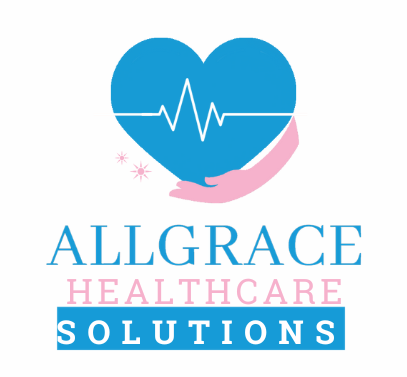Choosing the right healthcare providers for aging parents is a crucial decision that can greatly impact their well-being and quality of life. As our parents age, their healthcare needs become more complex, requiring specialized care and attention. The decision-making process can be overwhelming and challenging, as there are numerous factors to consider. However, taking the time to choose the right healthcare providers is essential for ensuring that our aging parents receive the best possible care.
Key Takeaways
- Choosing the right healthcare provider for aging parents is crucial for their well-being.
- Identify your parent’s healthcare needs and preferences to find the best provider.
- Research and evaluate healthcare providers in your area to make an informed decision.
- Check credentials, experience, and specialization of healthcare providers before choosing.
- Communication skills, bedside manner, availability, and cost are important factors to consider.
Understanding the Importance of Choosing the Right Healthcare Providers for Aging Parents
The healthcare providers we choose for our aging parents play a significant role in their overall well-being. These providers are responsible for managing and treating their medical conditions, providing preventive care, and addressing any health concerns that may arise. The quality of care they receive can have a direct impact on their physical and mental health.
Personalized care and attention are crucial for aging parents, as their healthcare needs are unique and often require specialized knowledge and expertise. By choosing the right healthcare providers, we can ensure that our parents receive individualized care that takes into account their specific medical conditions, preferences, and values.
Identifying Your Aging Parent’s Healthcare Needs and Preferences
Before choosing healthcare providers for our aging parents, it is important to have a thorough understanding of their medical history and current health status. This includes knowing about any chronic conditions they may have, medications they are taking, and any recent hospitalizations or surgeries. This information will help us identify the type of healthcare providers they may need, such as primary care physicians, specialists, or home healthcare services.
In addition to medical needs, it is also important to consider our parent’s preferences and values when choosing healthcare providers. Some parents may prefer a certain type of healthcare setting, such as a hospital or a nursing home, while others may prefer to receive care in the comfort of their own home. It is important to have open and honest conversations with our parents about their preferences and involve them in the decision-making process as much as possible.
Researching and Evaluating Healthcare Providers in Your Area
Once we have identified our parent’s healthcare needs and preferences, the next step is to research and evaluate healthcare providers in our area. There are several sources of information that can help us in this process. These include online directories, healthcare provider review websites, and recommendations from friends, family, or healthcare professionals.
When evaluating healthcare providers, it is important to consider their qualifications and reputation. This includes checking their credentials, such as their medical degrees and certifications, as well as their experience in treating aging patients. It is also helpful to read reviews or testimonials from other patients to get a sense of the provider’s quality of care and patient satisfaction.
Checking Healthcare Providers’ Credentials and Accreditation
Verifying healthcare providers’ credentials and accreditation is an essential step in the decision-making process. This ensures that the providers have met certain standards of education, training, and professional conduct. There are various accrediting bodies that oversee healthcare providers, such as the Joint Commission or the National Committee for Quality Assurance.
Checking for accreditation is particularly important when choosing providers for specialized care, such as geriatric care or dementia care. These providers should have additional certifications or training in these areas to ensure they have the necessary expertise to meet our parent’s unique needs.
Considering Healthcare Providers’ Experience and Specialization

When choosing healthcare providers for aging parents, it is important to consider their experience and specialization. Providers who have experience in geriatric care are often better equipped to address the unique needs and challenges that come with aging. They understand the complexities of managing multiple chronic conditions, medication interactions, and age-related changes in health.
Specialization is also important when it comes to specific medical conditions or treatments that our parents may require. For example, if our parent has Parkinson’s disease, it may be beneficial to choose a neurologist who specializes in movement disorders. By choosing providers with expertise in our parent’s specific healthcare needs, we can ensure that they receive the best possible care.
Assessing Healthcare Providers’ Communication Skills and Bedside Manner
Effective communication is essential in healthcare, especially when it comes to caring for aging parents. Healthcare providers who can communicate effectively with our parents and their families can help build trust, ensure understanding, and address any concerns or questions that may arise.
Assessing healthcare providers’ communication skills and bedside manner can be done through initial consultations or interviews. Pay attention to how the provider listens and responds to your parent’s concerns, whether they take the time to explain things clearly, and if they show empathy and compassion. A provider who can establish a good rapport with our parent is more likely to provide personalized and patient-centered care.
Reviewing Healthcare Providers’ Availability and Accessibility
When choosing healthcare providers for aging parents, it is important to review their availability and accessibility. Consider factors such as their office hours, location, and whether they offer telehealth or home visits. It is important to choose providers who can accommodate our parent’s schedule and location, making it easier for them to access the care they need.
Factoring in Healthcare Providers’ Cost and Insurance Coverage
Cost is an important consideration when choosing healthcare providers for aging parents. It is important to understand the provider’s pricing structure, including any out-of-pocket costs or insurance coverage. Some providers may offer transparent pricing or payment plans to make healthcare more affordable.
In addition to cost, it is also important to consider insurance coverage. Check whether the provider accepts your parent’s insurance plan or if they are in-network with their insurance provider. This will help ensure that your parent can receive the care they need without facing significant financial burdens.
Seeking Recommendations and Referrals from Trusted Sources
Seeking recommendations and referrals from trusted sources can be a valuable way to find healthcare providers for aging parents. Ask for recommendations from healthcare professionals, such as your parent’s primary care physician or specialists they may be seeing. They can provide insights into the quality of care provided by different providers and help guide your decision-making process.
You can also seek referrals from other families who have had experience with certain healthcare providers. They can share their firsthand experiences and provide valuable insights into the provider’s quality of care, communication skills, and overall patient satisfaction.
Making an Informed Decision and Building a Positive Relationship with Your Aging Parent’s Healthcare Providers
After conducting thorough research, evaluating providers, and seeking recommendations, it is time to make an informed decision. Choose the healthcare providers who best meet your parent’s needs, preferences, and values. Once you have made your decision, it is important to build a positive relationship with these providers.
Ongoing communication and collaboration with healthcare providers are essential for ensuring that our aging parents receive the best possible care. Keep open lines of communication, attend appointments with your parent when possible, and advocate for their needs and concerns. By working together with healthcare providers, we can ensure that our parents receive personalized and compassionate care.
Choosing the right healthcare providers for aging parents is a complex decision that requires careful consideration. By understanding our parent’s healthcare needs and preferences, researching and evaluating providers, checking credentials and accreditation, considering experience and specialization, assessing communication skills and bedside manner, reviewing availability and accessibility, factoring in cost and insurance coverage, seeking recommendations and referrals, making an informed decision, and building a positive relationship with healthcare providers, we can ensure that our aging parents receive the best possible care. Taking the time to choose the right healthcare providers is essential for their well-being and quality of life.
If you’re concerned about the well-being of your aging parents, it’s essential to choose the right healthcare providers for them. However, it’s also crucial to be aware of other health issues that may affect them. One such issue is substance abuse, which can have a significant impact on their overall health and quality of life. To gain a better understanding of this problem, check out this informative article on “An Overview of Substance Abuse in the United States: Causes, Treatment, and Impact.” It provides valuable insights into the prevalence, causes, and treatment options for substance abuse in the United States. Read more






0 Comments